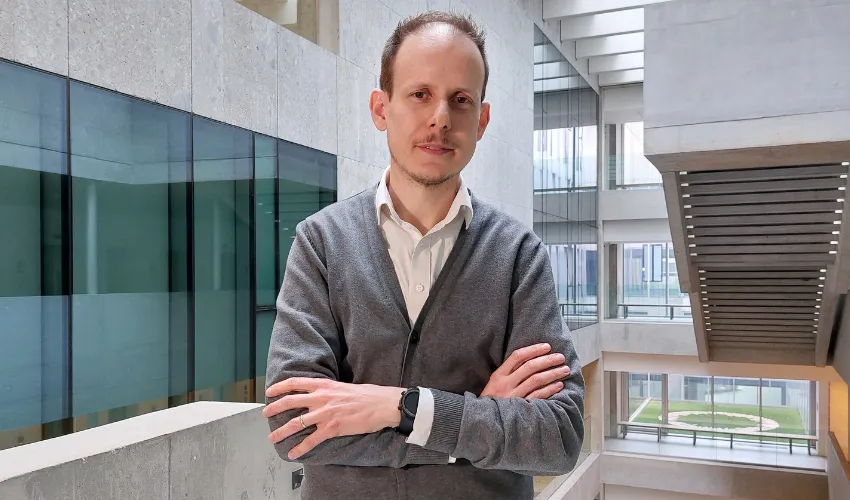
Pavel Hubacek Wins the Bernard Bolzano Endowment Fund Award
Czech academic Pavel HubáÄek, hailing from the Faculty of Mathematics and Physics of Charles University in Prague, and Visiting Professor at Bocconi's Department of Computing Sciences, has received the annual Bernard Bolzano Endowment Fund Award. The prize, granted by the Board of Trustees of the Fund, goes to a peer-reviewed paper in Mathematics, Physics or Computer Science whose author is not older than 35.
This achievement is the result of three different articles. In the first, the object was how to define of a certain new class of computational problems. The second of the works studies the limits of these techniques and was created in collaboration with students at the Institute of Informatics, Charles University. The last work shows a connection between the problems in algorithmic game theory and the demonstrable security of basic cryptographic protocols.
In the past few decades, cryptography (in short, the science which studies how to encode and decode communication) has been upended by rapid advances in computational technology which have made ever easier previously unaffordable calculations. The key to designing a good encryption algorithm lies ultimately not so much in defying what is possible in theory as in making the calculations required to break a code practically infeasible. Even the most advanced computers, that is, would have to work for months or years to work out the factors of a well-devised system, thus making the whole point effectively moot.
The mathematics behind the design of these complex algorithms has then to keep the pace of technological developments in computing, as the demand for secure communication has never been so strong. Think of the disruption potentially resulting from fraudulent access to infrastructure data or how hackers could cripple health care or defense units.
The fascinating complexity of this field of research is well described by Dr HubáÄek himself in a conversation he had at his home university: "I would like to resolve some of the main unanswered questions in my specialization. Such is, for example, the problem of computational complexity of the decomposition of natural numbers into the product of prime numbers. Any compound number can be decomposed into a product of prime numbers, but we cannot find this decomposition effectively. Modern cryptography uses this and often constructs practical schemes, the breaking of which is at least as difficult as factoring large natural numbers into the product of prime numbers. In the context of computational complexity, it has recently been shown that many significant problems in computational topology are at least as difficult as the factorization problem. I would like to extend these results to other types of computational problems, such as game theory or combinatorics."